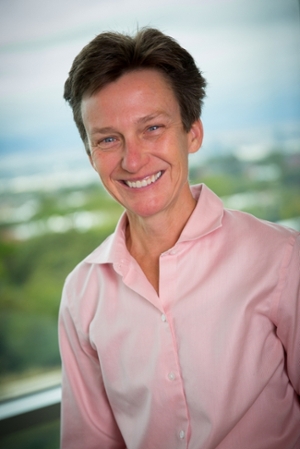
Author: Julie Fritz

Chronic lower back pain continues to be a major health concern in the United States. The Hispanic community is particularly troubled by this affliction. While translating health care materials into Spanish is a first step, more is needed to meet the needs of these patients.
“We found that there are cultural differences in how patients express pain,” said Julie Fritz, PhD, PT, ATC, Associate Dean for Research in the College of Health at University of Utah Health and senior author on the study. “Using the same tools in the same way for different communities doesn’t always work.”
Physical Therapy students and facultyat U of U Health spoke with Hispanic immigrants to identify their concerns about lower back care to craft treatments that are culturally sensitive and effective. The findings from this study were published in the April issue of the Physical Therapy Journal of Policy, Administration and Leadership.
“There are so many barriers to people in this community seeking help at a clinic,” said Katey Blumenthal, DPT, at U of U Health and first author on the study. “Bottom line is that we have to treat with a focus on our patients’ values.”
This study meets at the tangled intersection of culture and economics. The authors interviewed 12 patients from a pro-bono physical therapy clinic in Midvale, Utah to understand how this community accesses and uses health care to treat lower back pain. In addition, they examined how patients describe and understand the cause of their back pain.
They found that the lack of economic resources, odd or long work hours, lack of or inadequate health insurance, and sensitive issues, like immigration status, often reduce the motivation of the Hispanic community to access care.
Unlike previous studies, patients who lacked a physical understanding of their injury used catastrophic language to express their symptoms, including “killing me,” “splitting in two,” and coming apart.”
The fear of losing employment also forced some participants to continue activities, like lifting or standing, regardless of pain. Many participants prioritized their activities, focusing their energy toward employment tasks. In essence, the participants described pushing through the pain and sacrificing self-care or familial care.
While the Oswestry Disability Index (ODI), a tool to measure the extent of lower back pain, has been translated into Spanish, the participants found that it lacked many tasks seen as vital in this community, such as cleaning, cooking, childcare, or sporting activities.
According to Blumenthal, the Hispanic community views wellness from a holistic perspective, taking into account the physical, familial, spiritual, and occupational needs.
“We need to develop treatments that are directed toward something that is relevant in their lives while we grow a relationship built on trust,” Blumenthal said.
This research suggests that this specific population may benefit by redesigning treatments that focus on family- or community-based goals rather than self-care tasks. According to the study authors, clinicians should try to build rapport with Hispanic clients by helping them understand the burden of the illness on the entire family to encourage treatment.
Despite the interesting findings, Fritz cautions that this project studied one group, at one clinic, in one area of the country. She also points to other limitations in the study, including time-frame, patient follow-up, coding consistency, and scheduling constraints.
Fritz and Blumenthal feel that there are lessons to be learned about broader cultural awareness to help practitioners build trust with minority and immigrant communities.

“Thereare lessons here that extend beyond back pain,” Fritz said. “The ultimate goal is to help clinicians provide better services that are sensitive to the situation, culture, and economic circumstances of more diverse communities.”
Along with Fritz and Blumenthal, Brooke Schlotterback, DPT, Jaclyn Gebhardt Oliver, DPT, and Karina Abrew, DPT, at U of U Health also contributed to this research.
The University of Utah Student-Run Pro Bono Physical Therapy Clinic was founded in 2014 in partnership between graduate students from the University of Utah Department of Physical Therapy and Communities Building Communities, a non-profit based in Midvale, Utah. The purpose is to provide free physical therapy care to low-income individuals who identify themselves as living in a predominantly Mexican-immigrant community. The clinic functions on a volunteer-basis.